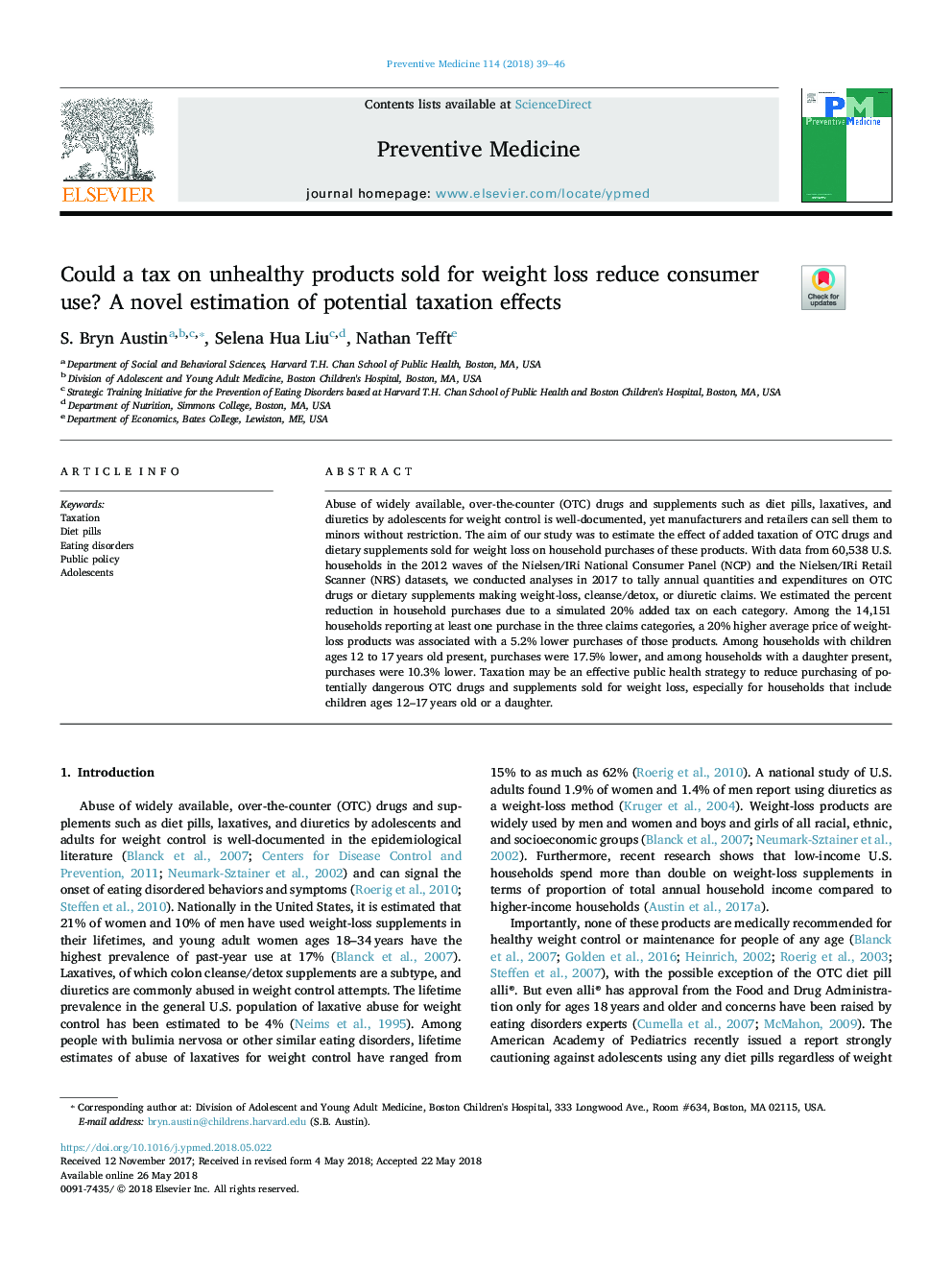| Article ID | Journal | Published Year | Pages | File Type |
|---|---|---|---|---|
| 8693429 | Preventive Medicine | 2018 | 8 Pages |
Abstract
Abuse of widely available, over-the-counter (OTC) drugs and supplements such as diet pills, laxatives, and diuretics by adolescents for weight control is well-documented, yet manufacturers and retailers can sell them to minors without restriction. The aim of our study was to estimate the effect of added taxation of OTC drugs and dietary supplements sold for weight loss on household purchases of these products. With data from 60,538 U.S. households in the 2012 waves of the Nielsen/IRi National Consumer Panel (NCP) and the Nielsen/IRi Retail Scanner (NRS) datasets, we conducted analyses in 2017 to tally annual quantities and expenditures on OTC drugs or dietary supplements making weight-loss, cleanse/detox, or diuretic claims. We estimated the percent reduction in household purchases due to a simulated 20% added tax on each category. Among the 14,151 households reporting at least one purchase in the three claims categories, a 20% higher average price of weight-loss products was associated with a 5.2% lower purchases of those products. Among households with children ages 12 to 17â¯years old present, purchases were 17.5% lower, and among households with a daughter present, purchases were 10.3% lower. Taxation may be an effective public health strategy to reduce purchasing of potentially dangerous OTC drugs and supplements sold for weight loss, especially for households that include children ages 12-17â¯years old or a daughter.
Related Topics
Health Sciences
Medicine and Dentistry
Complementary and Alternative Medicine
Authors
S. Bryn Austin, Selena Hua Liu, Nathan Tefft,
